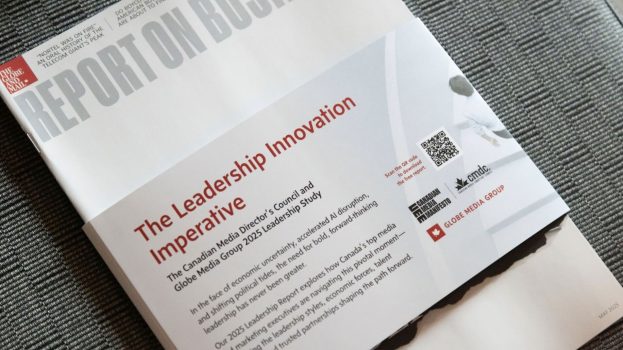It is a rare bird these days who will talk about advertising without cant or pseudo-profundity, but they do exist. And when they speak, as British adman Tim Delaney did recently to Strategy, it is wise to pay attention.
Delaney, in Toronto recently to speak during the Newspaper Marketing Bureau’s Extra Awards gala, is no seer, as he would be the first to admit. But he does have clearly thought out opinions about where he thinks advertising is heading and where this half-art, half-science will end up.
The venerable British creative director and founder of his own shop, Leagas Delaney, is convinced massive change is coming to the advertising business, whether in Europe, North America or elsewhere. And so massive is this change, Delaney sees parallels between that and the crumbling of the state regimes in the former Soviet Union and its satellites. The communist-militarist dictatorships of Eastern Europe could no longer sustain their bureaucracies, their superstructures, Delaney says. So, too, with multinational advertising agencies and their enormous fixed overheads.
Delaney predicts the globe-girdling juggernauts of the business will falter and bring down with them their various adjuncts such as media shops and research houses. When or where this will occur remains problematic, Delaney says, but it is coming and could return advertising to the three-people-to-a-shop cottage industry it once was. Clients, Delaney says to emphasize his point, will only pay agencies to make advertising.
Delaney’s outlook is not simplistic, nor is it apocalyptic. A cursory examination of business in Canada today reveals the companies that are surviving the second economic depression in 60 years are mostly small, nimble and fat-free. Why should advertising be any different?
Delaney is on equally stimulating, but less firm, ground with his tacit approval of what he calls the coming of ‘neo-imperialism’ in advertising. As an illustration, Delaney uses the example of the Nike athletic equipment trademark. Advertising creative is approved in Oregon, Nike’s headquarters, and used around the world. If consumers in France or Germany or Australia respond to it then they are ‘Nike people’ and may buy the company’s products. But if other consumers in Sweden or Spain or Brazil do not respond to the same ad they are not Nike people and so beyond this athletic shoe’s pale.
Canadian ad agencies might find Delaney’s prediction of a coming neo-imperialism at odds with his earlier suggestion that small shops are the future. His reasonable views on the breakup of the multinationals might leave them wondering where the power to back this neo-imperialism will come from if not from the multinational agencies. Delaney would counter that technology has levelled the playing field, giving even the smallest of agencies ready access to the new neo-imperialist market.
Whether Delaney’s predictions are right or wrong, time, of course, will tell. But for those agencies blinking out at North America and beyond from agency centres across Canada, it is heartening to be reminded once again that new opportunities are unfolding, and that the basis for successful advertising continues to be nothing more complicated than clear thinking.























